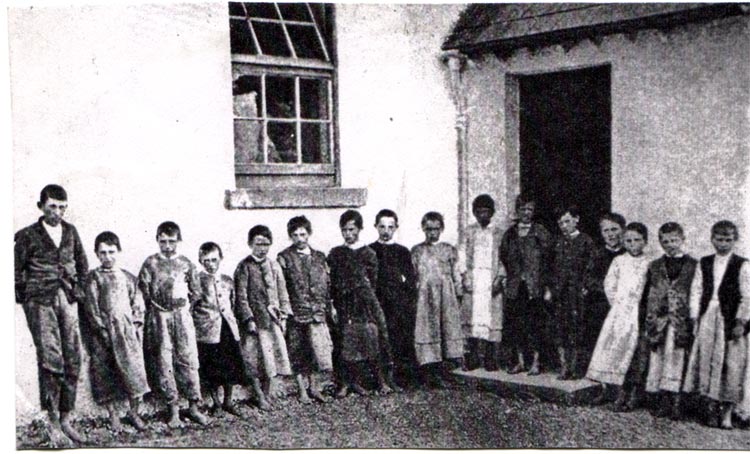|
The following poem is based on an old photograph taken somewhere in Connemara, Ireland about 1900. It shows a group of schoolboys posing outside their one-room schoolhouse with the younger ones dressed in skirts—“to disguise themselves from the fairies." Five parts of this poem were published in The Kenyon Review in 1992. World events brought Christopher Woodman back to its themes a few years ago, the result being three new sections and a shift in focus. The poem has become an important element in an unpublished book called LA CROIX MA FILLE: Hexes, Ruins, Riddles & Relics. What was originally the unpublished Part VII, for example, "Why Up So Late on the Village Green Then, Pietà, After All Those Flags, the Honor?" has now been expanded to 120 lines in itself. Not only is it one of Christopher Woodman's most recent projects but one which, he says, most defines him as a civic being as well as a poet.
updated
May 5th, 2022
|
||
|
`
Address: P.O.Box 427 2495 North Fish Creek Rd Wilson, Wyoming 83014 U.S.A. & 93 Moo 12 Tawangtan, Saraphi, Chiang Mai 50140, Thailand
telephone:
(307) 733.0410 (U.S.) (66) 81.885.1429 "
Address: P.O.Box 427 2495 North Fish Creek Rd Wilson, Wyoming 83014 U.S.A. & 93 Moo 12 Tawangtan, Saraphi, Chiang Mai 50140, Thailand
telephone:
(307) 733.0410 (U.S.) (66) 81.885.1429 "
Address: P.O.Box 427 2495 North Fish Creek Rd Wilson, Wyoming 83014 U.S.A. & 93 Moo 12 Tawangtan, Saraphi, Chiang Mai 50140, Thailand
telephone:
(307) 733.0410 (U.S.) (66) 81.885.1429 "
Address: P.O.Box 427 2495 North Fish Creek Rd Wilson, Wyoming 83014 U.S.A. & 93 Moo 12 Tawangtan, Saraphi, Chiang Mai 50140, Thailand
telephone:
(307) 733.0410 (U.S.) (66) 81.885.1429 "
|
CONNEMARA TROUSERS
A POEM IN SEVEN
MASKS
For the men
in western Ireland who
And for all
other men and women who,
I. Inventing the Skirt
See how the female fingers run
So freed the heavy fabric
The old rubbed contours empty out,
Even the fly reduces to
And watch the hem too how it cuts
The wrecked stance strides no more
Is all this new flesh
Is this a healing back
II. In the Courtyard, Blooming
Wrapped so around
So let's unlace the lips
Let's span the root-pale
And still our shutters
Who could but draw
Perhaps tomorrow morning
III. Reasons for Hiding
What curse compels this womb
Who could have
IV. The Disguise
Then what are daughters for if not to cover
V. Wearing the Skirt
And who would ever dare
See how they squint back
How patched they are,
Is it that their genitals
Or do their mothers shut
And who comes running then
Then
they can row the curragh,
VI. Why the Fairies Don't Mess With Girls
Because they give up
Because they change the rules
Because they plan the end
Because they have no honor
Because they don't go too far
Because they only play
What charm
What spell
What hand
VII. WHY UP SO LATE ON THE VILLAGE GREEN THEN,
Your hero’s wounds
Even we veteran faithful
Each callused hand too
pierced with the nail
But look to the lady
Even to the heart
Half hidden by the hoary
Still farther in the dead
And still with consummate
So how should we presume
VIII. Elegy for Heroes like Heroines
And then we
Between the shroud
But to be equally split
Knees knit together
So pity the mermaid
And pity the gamin CHRISTOPHER WOODMAN
Five parts of this poem, I, II, V, VI & VIII, were published
|
|
